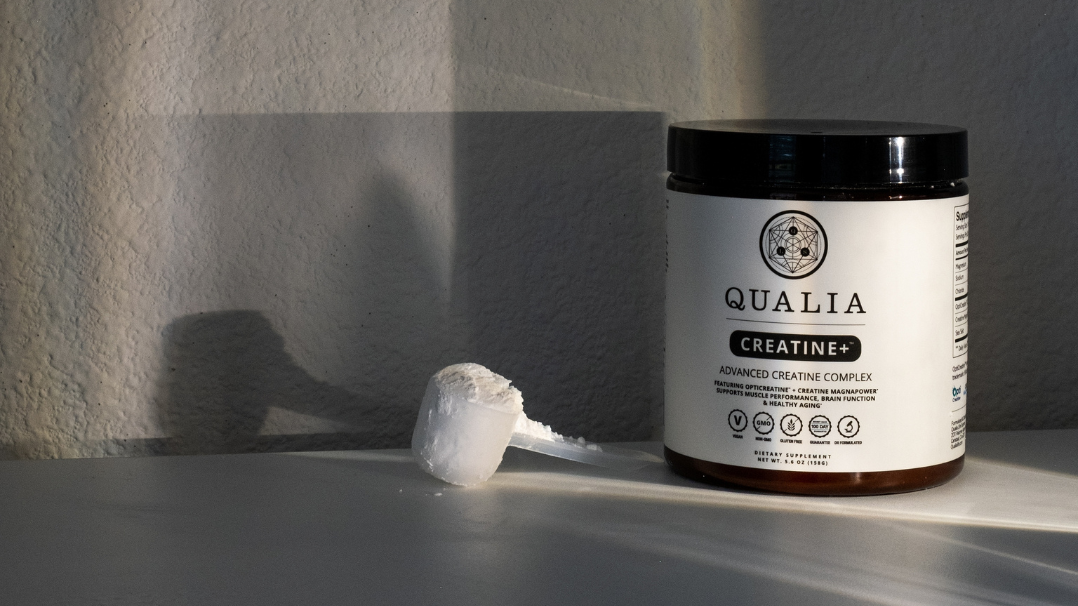The importance for human health of microbes that naturally live in the gut has been a recent hot topic in science. Also in the spotlight, the communication between the gut and the brain — the gut-brain axis — has been shown to regulate cognition and emotions. But exactly what happens in the gut that might support health and influence the brain is still being explored. Check out this study assessing how a specific microbe can promote oxytocin release in the gut.
Key Takeaways
The microbe Limosilactobacillus reuteri 6475 promotes the release of oxytocin in the gut
A hormone called secretin mediates the effects of L. reuteri on oxytocin release
Oxytocin is released from gut cells called enterocytes
What is Oxytocin?
Oxytocin is a signaling molecule produced in the hypothalamus that acts both as a hormone and neuromodulator. Oxytocin is involved in important physiological functions, including the regulation of homeostasis, electrolyte balance, blood pressure, appetite, and metabolism.
But oxytocin is better known for its influence on romantic attachments, sexual arousal, childbirth, maternal behaviors, social behaviors, stress resilience, and for promoting trust, empathy, and generosity, which has famously earned it the title of “the love hormone”.
Research shows that oxytocin levels can be boosted by physical contact with a loved one, seeing, hearing or even just thinking of someone you love, spending time with friends, interacting with a pet, getting a massage, as well as relaxing activities such as yoga.
Oxytocin’s ability to promote positive feelings has motivated the search for simple approaches to boost its production. Research has shown that oxytocin levels can be boosted by simple self-soothing behaviors such as physical contact with a loved one, seeing, hearing or even just thinking of someone you love, spending time with friends, interacting with a pet, getting a massage, as well as relaxing activities such as yoga, listening to music, or singing.
Health-Promoting Microbe Drives Oxytocin Release in the Gut
Trillions of microbes live in the human body and are implicated in multiple important processes that contribute to our health. Collectively, these microbes, their genes, and the molecules they produce are called the microbiome. Research into the human microbiome has been increasing dramatically in recent years and particular attention has been paid to the microbes that reside in the gut—the gut microbiome.
Limosilactobacillus reuteri 6475 (previously called Lactobacillus reuteri ATCC PTA 6475) is one such microbe, which promotes gut transit, helps regulate the immune system, and even promotes normal social behavior. Oxytocin has been shown to be required for the social behavior promoting activities of L. reuteri 6475, which can stimulate oxytocin release in the brain through signaling via the Vagus nerve. But what exactly happens in the gut that stimulates the gut-brain axis and leads to the release and benefits of oxytocin in the brain remains unknown.
The microbe L. reuteri 6475 stimulates cells in the intestine to release the gut hormone secretin, which in turn stimulates the release of oxytocin in the brain through Vagus nerve signaling.
Aiming to answer this question, and knowing that many hormones produced in the brain are also produced in the gut, scientists in the U.S. set out to analyze the molecules released from cells of the gut wall and how L. reuteri 6475 influences their secretion. Using genomic analysis in individual cells of mice, monkeys and humans, it was revealed that the gene coding for oxytocin (OXN) is expressed in the gut across the three mammalian species. Further analyses using microscopy techniques in human gut tissue supported those findings, showing that oxytocin was produced in cells of the stomach and small and large intestines.
Further genetic studies with organoids, which are small, 3D versions of organs generated from adult gut epithelial stem cells, revealed that oxytocin can be produced by gut epithelial cells (a type of cells that covers body surfaces) independently of signals from other gut cells. This means that these cells, which are exposed to the gut lumen can potentially be stimulated by L. reuteri 6475 to secrete oxytocin.
Then, to determine whether L. reuteri 6475 could drive oxytocin release in the gut, gut segments from mice, pigs, piglets, and humans were exposed to molecules released by this microbe. Oxytocin was indeed detected in tissue from all animals, with no difference between males and females. Notably, other bacteria tested, such as Escherichia coli, were unable to stimulate oxytocin release.
Next, through a series of experiments that aimed to find which type of gut cell produces oxytocin, the investigators found evidence suggesting that the hormone is produced and released from enterocytes, which are cells of the gut epithelium responsible for nutrient absorption and uptake. Oxytocin being present in enterocytes supports a role of this hormone in metabolism, the investigators said.
Knowing that oxytocin release in the brain can be induced by a hormone called secretin, the researchers tested whether the same process could occur in the intestine. Indeed, they found that secretin could stimulate the release of oxytocin from gut organoids at levels similar to those found in the study’s earlier experiments. Supporting these results, blocking secretin’s receptor, the protein that secretin binds to to induce its effects, eliminated oxytocin release in both organoids and human tissue.
Altogether, these findings suggest that secretin, a hormone produced in the small intestine that supports pancreatic function, mediates the release of oxytocin induced by L. reuteri 6475. Importantly, this is a novel mechanism through which microbes regulate our body through the gut, the team pointed out.
Looking ahead, the results open new research avenues towards better understanding the role played by oxytocin originating in the gut. Although gut oxytocin might only have local effects, another possibility is that the release of this hormone in the intestine guides a similar release in the brain’s hypothalamus, an area where oxytocin acts to promote positive feelings. Whether that could be the signal through which L. reuteri 6475 in the gut supports human health in the brain remains to be determined.
Support a Healthy Gut Microbiome with Qualia Probiotic+
Qualia Probiotic+ is a combination of prebiotics, probiotics, postbiotics, fermented foods, herbs, and digestive enzymes that work complementarily to support digestive health, gastrointestinal performance, the gut microbiota, the gut-immune axis, and the gut-brain axis. We developed Qualia Probiotic+ to support gut health, gastrointestinal performance, and the gut-brain axis.*
*These statements have not been evaluated by the Food and Drug Administration. This product is not intended to diagnose, treat, cure, or prevent any disease.
Referenced study:
Danhof, HA, Lee, J, Thapa, A, Britton, RA, Di Rienzi, SC.: Microbial stimulation of oxytocin release from the intestinal epithelium via secretin signaling. Gut Microb. 2023, 15(2): e0219233. doi:10.1080/19490976.2023.2256043








No Comments Yet
Sign in or Register to Comment